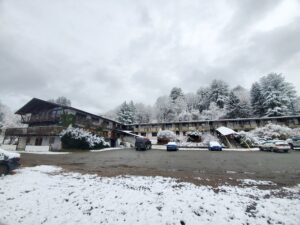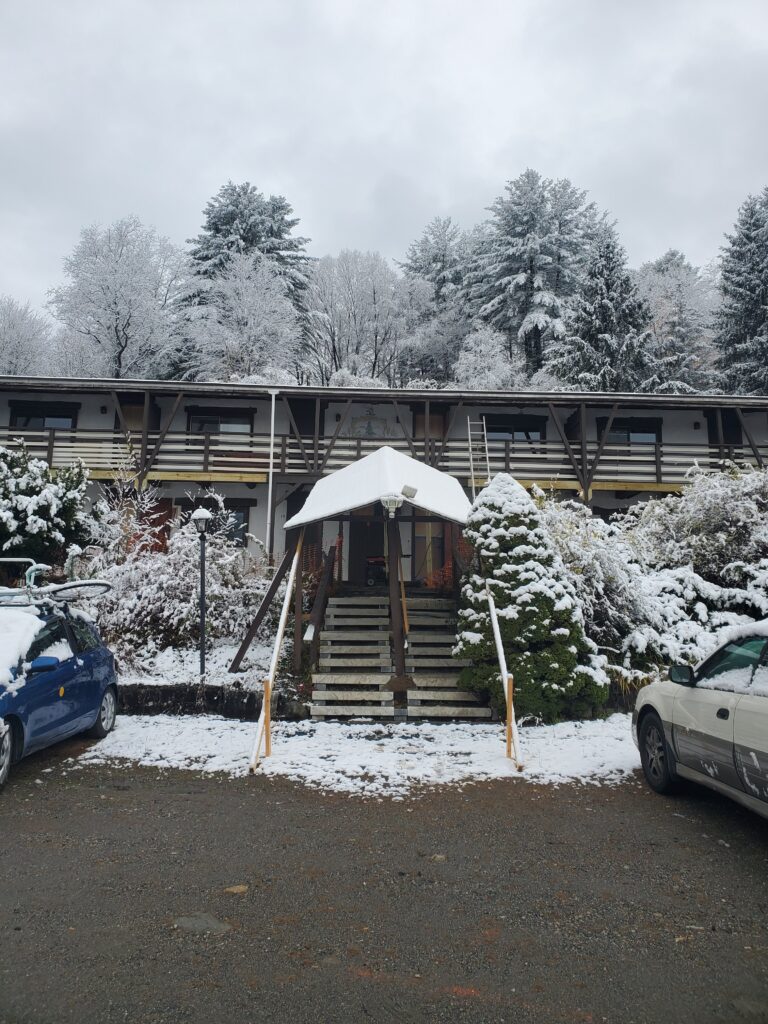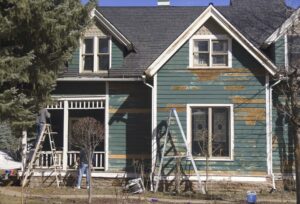Something extraordinary happened in the early days of the COVID pandemic in Vermont. For the first time ever in Vermont history, homelessness was solved. Even though it was temporary, it was a moment to celebrate. Community leaders and homeless advocates asked, what more can we do? Were there more permanent solutions within reach?

Across the U.S., the homeless population has been one of the most vulnerable to COVID-19. Lack of access to clean water, sanitation and health care along with living in crowded shelters and tent encampments where physical distancing is impossible, all increase the risk of the virus spreading exponentially.
Here in Vermont, officials acted quickly to implement an expanded motel voucher system, and made it available to every Vermonter who lacked shelter. CARES Act funding was used to negotiate lower nightly rates and effectively take over entire properties to house homeless individuals. In Brattleboro, the scramble for temporary shelter intensified this community’s urgent need for more permanent, affordable housing.
At the height of COVID isolation, Brattleboro was housing 151 people in several area motels. Currently, Groundworks Collaborative continues to support over 100 people residing in motels, all of whom face an uncertain future when the emergency motel program expires.
“We realized we had a real opportunity here,” says Josh Davis, Executive Director of Groundworks Collaborative. “We have unprecedented resources in our community right now because of the CARES Act. At issue is the fact that we don’t have housing stock to move people into.”
He and colleague Elizabeth Bridgewater joined forces, advocating for more permanent solutions and pursuing funds. Working together with other advocates across the state, they helped to secure over $30 million in CARES Act funding to address homelessness. But with this funding windfall came an exceptionally tight window of opportunity – all spending needed to be complete by December.
“Vermont simply does not have enough homes to meet the needs of our community and because of this, our most vulnerable community members are the ones who are impacted the most,” says Elizabeth. “CARES Act funding has allowed us to use a number of strategies to address this challenging issue and have immediate impact throughout our entire region.”
The Chalet Project
Using COVID relief funds, WWHT purchased, and is in the process of transforming the former Dalem’s Chalet in West Brattleboro into permanent supportive housing. When complete, the property will provide 27 units of permanent housing with on-site supportive services coordinated by Groundworks Collaborative. It’s a concept that has already proven to be successful at the Housing Trust’s Great River Terrace, opened in 2018 and lauded as the first permanent supportive housing project in southern Vermont.

A number of key factors figured into the choice of the Chalet property, including its residential location, its capacity, and motel configuration of rooms that opened to the outside. But perhaps the most significant is its potential for future development – the property could support the construction of a significant number of new homes in the future.
Permanent supportive housing pairs housing with case management and voluntary supportive services, and is a proven solution to homelessness for the most vulnerable, chronically homeless people. In a similar model as Great River Terrace, Groundworks Collaborative will be the lead service provider, offering on-site supportive services to residents seven days a week from 9am to 11pm.
Subsidies are being pursued through both the Vermont State Housing Authority and the Vermont Agency of Human Services. CARES Act money awarded for this project does not cover the services component, so Groundworks and WWHT have pursued support from State agencies and will conduct a joint fundraising campaign to cover approximately $200,000, which will make up the difference in the five year staffing budget.
Josh believes honesty is at the core of why the two organizations work so well together. “I think there is a deep respect for our mission and the work we do. As problems arise, we tackle them together. We are able to sit with difficulty together, take risks and celebrate successes. This is a risky project with a tight timeline and funding that expires. We are taking a real leap of faith that we’ll be able to deliver on both sides. We are both very honest about what we can deliver.”
Elizabeth added, “We are so fortunate to have Groundworks as a partner. They are fierce advocates and are creative in their thinking. We experienced so many bumps along the road while working through the details of a complicated project, but we never wavered from our commitment to our partnership and from what we were trying to accomplish together. We knew we were stronger together, and what’s truly exciting is the deep community impact this project is going to have.”
Rehousing Recovery Program
The second program launched with CARES Act funding is the Re-housing Recovery Program. This program offered grants of up to $30,000 per unit to private landlords and property owners to rehab vacant and blighted apartments, bring them up to code, and bring them back online. Property owners are required to match 10%, and to work through the Continuum of Care entry system to find suitable renters. They are also required to maintain their rents at HUD fair market level for 5 years.

Each region of Vermont has its own Continuum of Care, and depending on where the landlord’s property is located, they are linked to the proper organization. Within the WWHT service area, landlords will consult with either Groundworks Collaborative, Springfield Supportive Housing, or Upper Valley Haven.
“The response has been overwhelming,” says Bruce Whitney, Director of Homeownership at WWHT. He reports a total of 24 owners with 34 buildings applied for grants, representing a total of 67 units. Of those, 44 are vacant. Although Bruce says all 67 units won’t be complete, he anticipates at least 46 units will be brought back online and occupied by December 20th.
The other big success, says Bruce, is the distribution throughout WWHT’s entire service area. There are a good number of units located in every major commercial town, from Royalton to White River Junction to Brattleboro.
“There is some creative thought going into converting these spaces into residences,” says Bruce. “A lot of the buildings are in really rough shape. Maybe the area was previously a commercial space, or the second floor of a downtown building. Some are reconfiguring to create smaller, efficiency units, which is a real need in the community. In some cases, owners are creating new units.”
“It has been a great partnership,” says Bruce. ”Anytime you can bring this many units online, that’s significant impact.”




